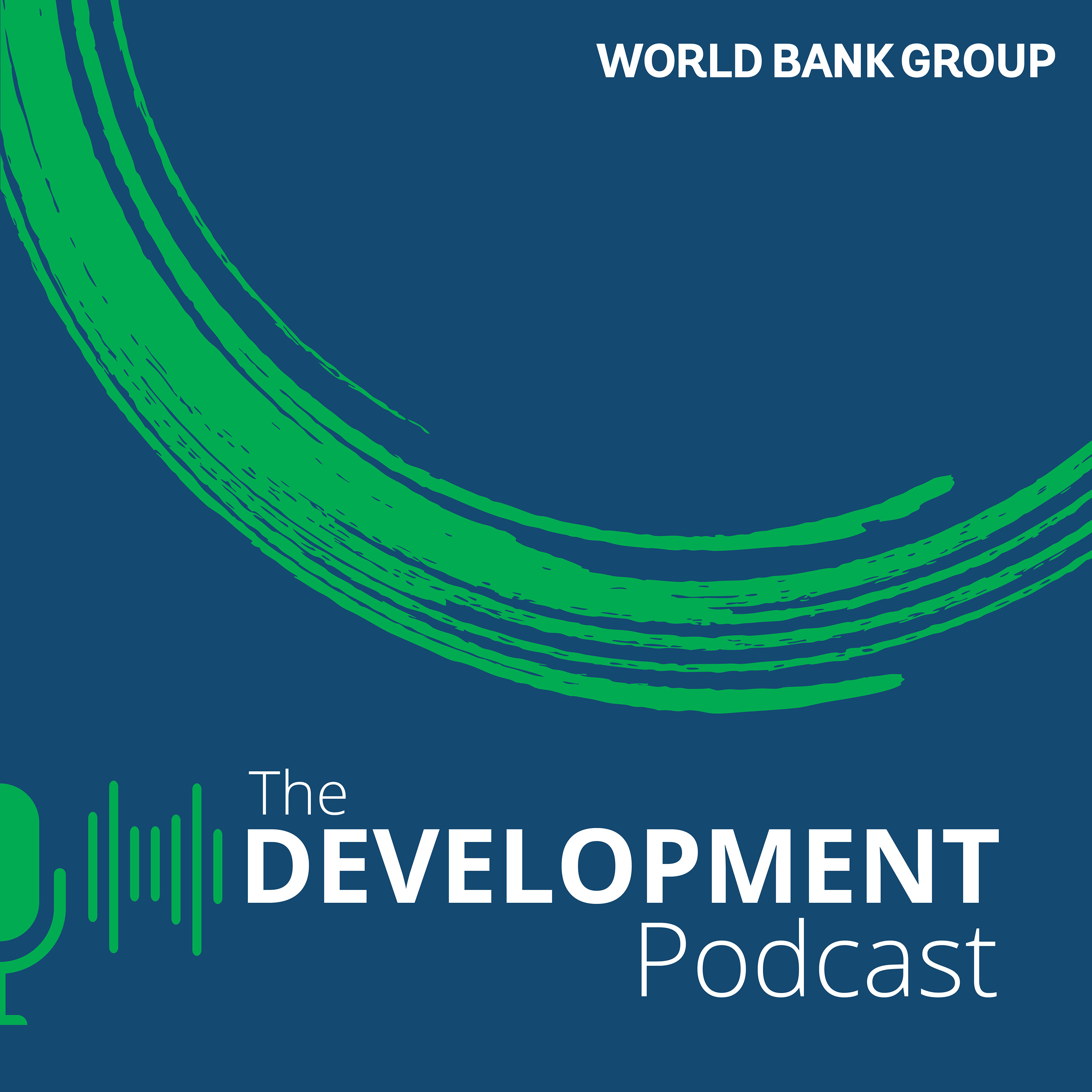World Bank | The Development Podcast
By World Bank
Listen to a podcast, please open Podcast Republic app. Available on Google Play Store and Apple App Store.
Image by World Bank
Category: Government
Open in Apple Podcasts
Open RSS feed
Open Website
Rate for this podcast
Subscribers: 73
Reviews: 0
Episodes: 30


Description
The Development Podcast brings together the latest data, research and cutting-edge solutions that can pave the way to a sustainable future – everything from poverty to climate change, education to nutrition, and a whole lot more. We’ll take you on a journey around the world of international development in this World Bank's flagship monthly podcast. More information: http://wrld.bg/f2SX50MJyZB
| Episode | Date |
|---|---|
|
Working together: Partnerships for Impact
|
Feb 06, 2026 |
|
Getting Development Done: 2025 in Review and Look Ahead
|
Dec 19, 2025 |
|
Everything Connected: Building Systems to Create Jobs
|
Nov 06, 2025 |
|
What Do Shifting Demographics Mean For Future Development?
|
Oct 02, 2025 |
|
Powering More With Less: All You Need To Know About Energy Efficiency | The Development Podcast
|
Sep 04, 2025 |
|
De-Risking Development: All You Need To Know About Guarantees | The Development Podcast
|
Jul 03, 2025 |
|
Why Digital Transformation Matters | The Development Podcast
|
Jun 05, 2025 |
|
Jobs: The Path to Prosperity | The Development Podcast
|
May 08, 2025 |
|
Improving the Lives of Women in Artisanal Small-Scale Mining | The Development Podcast
|
Mar 26, 2025 |
|
Mission 300: Powering Development in Sub-Saharan Africa | The Development Podcast
|
Mar 04, 2025 |
|
2024 in Review and the Challenges Ahead | The Development Podcast
|
Dec 19, 2024 |
|
IDA: Why Does the International Development Association Work? And How? | The Development Podcast
|
Dec 03, 2024 |
|
Annual Meetings 2024: How We've Progressed and What's Next? | The Development Podcast
|
Nov 07, 2024 |
|
Keeping Score: Measuring Impact in Development | The Development Podcast
|
Sep 28, 2024 |
|
Journey to a Livable Planet | The Development Podcast
|
Aug 09, 2024 |
|
What Does Artificial Intelligence Mean for the Developing World? | The Development Podcast
|
Jun 28, 2024 |
|
Forests: How Can We Prosper in Harmony With Nature? | The Development Podcast
|
May 21, 2024 |
|
Spring Meetings 2024: From Vision to Impact | The Development Podcast
|
May 02, 2024 |
|
The Journey Towards Gender Equality: Are Laws on the Books Enough? | The Development Podcast
|
Mar 08, 2024 |
|
What Is a Green Job? | The Development Podcast
|
Feb 08, 2024 |
|
How Can We Better Support Refugees | The Development Podcast
|
Jan 10, 2024 |
|
Tackling the Climate Crisis | The Development Podcast
|
Dec 04, 2023 |
|
Annual Meetings 2023: A New Vision for Challenging Times | The Development Podcast
|
Oct 27, 2023 |
|
Tackling Food Insecurity: From Emergency to Resilience | The Development Podcast
|
Sep 29, 2023 |
|
How Do We Support the World’s Poorest Countries? | The Development Podcast
|
Jul 28, 2023 |
|
The Interlocking Challenges of Climate Change and Poverty | The Development Podcast
|
Jun 30, 2023 |
|
On the Move: The Migration Challenge
|
May 26, 2023 |
|
Spring Meetings 2023: Toward a New Era
|
Apr 28, 2023 |
|
Everyday Superheroes: Exploring Unpaid Care Work By Women
|
Apr 01, 2023 |
|
Challenges Without Borders: Confronting Crises Around the World
|
Feb 24, 2023 |
